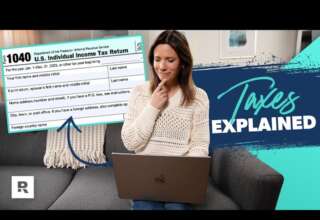
N Chandrasekaran completes a year as Tata Sons’ Chairman and keeps to his promise of stabilising the conglomerate by simplifying the structure. In an interview to CNBC-TV18, Vallabh Bhanshali, Chairman of Enam Securities shared his views on the same.
Bhanshali said that would rate Chandra’s performance as 9 on 10 this year, as Tata Group Chairman.
He further said that Chandra provides an exemplary depiction of an uncluttered mind.
I see Chandra as a software man with niche in finance, he added.
He also mentioned that subject to external limitations, Chandra has shown blistering speed.
Talking about business, he said return on capital employed (RoCe) of the Tata Group will improve over two years.
Below is the transcript of the interview.
Q: How would you rate the past one year of the new chairman at Tata Sons?
A: I would give him 9 out of 10 because it is customary not to give 10 out of 10. He has been extraordinary, not only for Tata’s but for the whole country. So, I am happy about his anointment as the chairman and his performance.
Q: What stood out for you – the way he ended the dispute with NTT-Docomo or the way in which he kind of ring fenced the problem at Corus or ended the problem in telecom, what stood out for you?
A: I think it is an exemplary case of an uncluttered mind. In India we haven’t seen many minds of this quality because there is an answer that lies in every problem and you need to see it.
Why I said he is an example for whole India is precisely for that reason. Many times your emotion, your culture, your lack of boldness or your lack of sheer understanding etc, I have seen over the years, don’t enable or disable a person from taking a decision.
He just went about applying his software knowledge. So, when I see N Chandra, I see this software man with an extraordinary sense of finance and direction.
The fact that he ran a large empire in terms of people employed was less of a qualification but he took software solutions to hundreds of clients around the world and believed into solutions and that is what he has brought to his job. There is a logic to everything and you must follow the logic and nothing else and that is how he has gone about doing his things. It wasn’t difficult for him at all because he said if something needs to be done, it needs to be done and we will see what the aftermath is. He is extraordinary.
Q: He has given some indication that we will simplify the holding structure, he has been looking at all the consumer products coming into one category or into one company and perhaps all the defence coming into one company, he has given us some indication. Is there anything where he falls short according to you? Could he have packed more in the first year?
A: There is no group in India which has more potential than Tata’s. For at least 35 years we have wondered at the House of Tata’s for their great cultural contribution but also their absolutely convoluted way of doing business – number of companies, slow decision making etc and N Chandra has brought great strength to it, great speed to it. One could wish that there could be even greater speed. However what he has achieved is absolutely wonderful. I don’t think it was possible really to do more.
Also we don’t have that vibrant a market in merger and acquisition (M&A), it is unimaginably better than what it was 15 years ago but yet it is limited. So, getting rid of assets is not that easy and you don’t want to sell assets at 10 paise on a rupee. So, I believe subject to the market being available, subject to the law requirements of cross holdings etc taking time, I think he has set a blistering speed, I think he has done exceptionally well.
Q: Tata’s are buying one asset and some would say at an overvalued level – the Bhushan Steel bid for instance. Do you admire the aggression or is this more than you can admire?
A: The logic has been explained in the market place. He has also spoken indirectly about it and others have analysed it. I think the value of synergy is the one to look at in all M&A operations. So, I think there is huge amount of synergy.
Also the Bhushan Steel balance sheet is not extremely well understood. Given the fact that he today has a situation where at least in Tata Steel having got rid of Corus etc, he has balance sheet room and if you go after something, you go after it slightly aggressively just like when you are selling, you don’t try and get the last penny. So, you have to be generally right in M&A, you cannot be precisely right in M&A. Only time proves whether your decision was good or bad.
Being a strategic thinker, I think he is thinking in that manner and I would agree completely with that approach.
The difference between Corus and this is that, Corus was an electronic auction, it became an emotional drama, whereas this is cool, considered decision making. So, I think this is on very good keel.
Q: What would you say are N Chandra’s challenges this year?
A: I think more of the same, that he wants to bring capital efficiency, something which lot of friends in Tata House also used to point out that we have great cultural direction etc but unless we get a return on capital, how will we service the trust eventually, so I think his focus is on getting RoC up and that can happen only by reducing the denominator and increasing the numerator. So, I think his focus on improving the efficiency of companies, very tight control on capital allocation, I think this is basic math but only an uncluttered mind, a logical mind can pursue it and I think he has also got some tailwind now favouring him.
I think some of his businesses have tremendous potential and Tata’s are present in all segments of the economy. I think with this tailwind some of that numerator should improve while he gets rid of the inefficient denominator. I think over two years his RoC should improve. I think that is the main goal to pursue for him.
Q: Would you expect more disentangling and bunching up of like sectors in one company? We were expecting a consumer giant coming in, consumer facing giant coming in, another for defence, something on those lines you would expect this year?
A: If we see what is happening in the start-up world or even in the regular world, we find that companies that are following a strategic path today receive fantastic PE offers, fantastic strategic interests and I think Tata’s will also witness that, those choices will be there to them and then the alternative capital market is open to big expansions. So, today both focus and size are important. India is no more a small market, everything has to be of a certain size. So, just putting things together does not add size, it has to have synergy, it has to have focus. So, I think they have a great leader in Titan, Voltas, of course in software, in steel, in automobiles etc.
So, you have to first bring the operations to an efficiency level which is interesting to the outsiders and that is how you get the best customers, best employees and then best outside interest.
I think N Chandra has had a sharp focus on those parameters and then the financial efficiency follows and then the partner efficiency follows. So, I find in discussion with him that he has made it extremely simple, it is uncanny that how a large group is being run by a very simple metrics but you can’t take him off the metrics, that is the difficulty for his managers that he just talks metrics.
Q: N Chandra also represents perhaps the first instance of almost a family run conglomerate now passing into professional hands. Will this be a one off or will this be a trend?
A: I think increasingly trend. I hear lot of promoter families wanting to professionalise and different degrees of professionalization have been achieved. So, if you look at Raheja, Shoppers Stop has been run by a professional for a long time. So, this trend is only going to grow. Clearly the sizes are such, complexities are such that in their own interest families would bring professionals. Tata’s – what a semi-professional kind of group. I think it is a lesson for the country as I said for various points of view and one of them is that eventually companies represent lot of constituencies including banks and small shareholders and it is important that they are run in an optimum manner and one cannot say that family is the only one that can run it.
Q: If along only fund came to you and asked you to advise them about Tata’s, would the Tata’s outperform other Indian companies over the next say 2-3 years, what would your reply be?
A: I think the long funds have taken position in select companies and it has to be in that manner only. There is no holding company here. So, I think the action has already begun. There are number of companies which seem very attractive for longs.
Q: If you have to advise the government or the Finance Minister, what would you say? The problems are only mounting – first it was bad loan, now it is fraud?
A: Bad loans and frauds go together. I would think that the government has been cautious on this front right from day one and they kind of indicated that money is not easy to come, banks will have to shape up. Reserve Bank of India and the government have been acting in tandem and they have set a course, I think they will run the course. The banks cannot be allowed to just drown but at the same time the banks will have to shape up. The first set of capital has been released and I have always said that banks are as good as the bankers who run it. We have seen small banks become extraordinary banks and big banks just collapse. So, the challenge is really in the management even more than the capital. That is the solution that has to be sought, that how will you attract talent?
Two year back the government tries to bring talent to these banks, we had some success in bringing someone like PS Jayakumar to Bank of Baroda, but that is too small a win. So, we have to solve that problem, more than capital problem. I hope the government will take action on that front also. You need to liberalise the rules to be able to do that.
This is the last year of the government and there are other priorities, so I think we have a bit of a challenge there.
Q: Are you suggesting that the government should look at under 50 percent ownership, privatisation?
A: These are very large issues and there are many angles to it particularly given the phase of the government that we are now in, we cannot expect that something dramatic can happen.
This government has been extraordinarily bold like N Chandra n taking the right decisions, logical decisions. So, this has many angles to it, so navigating that maybe difficult in just one years’ time.
So, maybe whichever government comes after the election, will have to look at it, just as I said that companies cannot be allowed as they represent public interest, banks are even more so. So, we need to take all the hard decisions, move away from ideological hang-ups and do the right thing.
Q: Will this be a challenging year for stock market investors as well? They came in droves last year. The mutual fund industry touched new highs in terms of assets under management every month, will this year be more challenging?
A: It is just in the scheme of things that you have up and down, that is how one has to accept it. We had a huge wave up, we may see some consolidation this year but India seems to be on a solid wicket. The market went up in anticipation of earnings improvement and I think that has been played out. It will consolidate at this level, earnings will roll forward, PE’s will roll forward and that is about it. I hope that the monsoon god continues to favour us so that we don’t have additional pressure on inflation. However what has been achieved in terms of launch of GST, its consolidation, now simplification, life has come to normal so fast, this is extraordinary, it is a great situation to be in. I think it is a world record for a large country with this kind of infrastructure to pull off GST in such a short period. That one reform alone means so much.
I am also very excited about what has been announced in the Budget on the APMC front etc. So, I think if you are able to take those reforms to the ground level, that means we are able to provide security, more than security a sense of security to large number of our people, we are going to see a very strong trend in consumption and real welfare. So, I think it is just a bit of a consolidation in the long term story of India, I wouldn’t even worry about it.


















